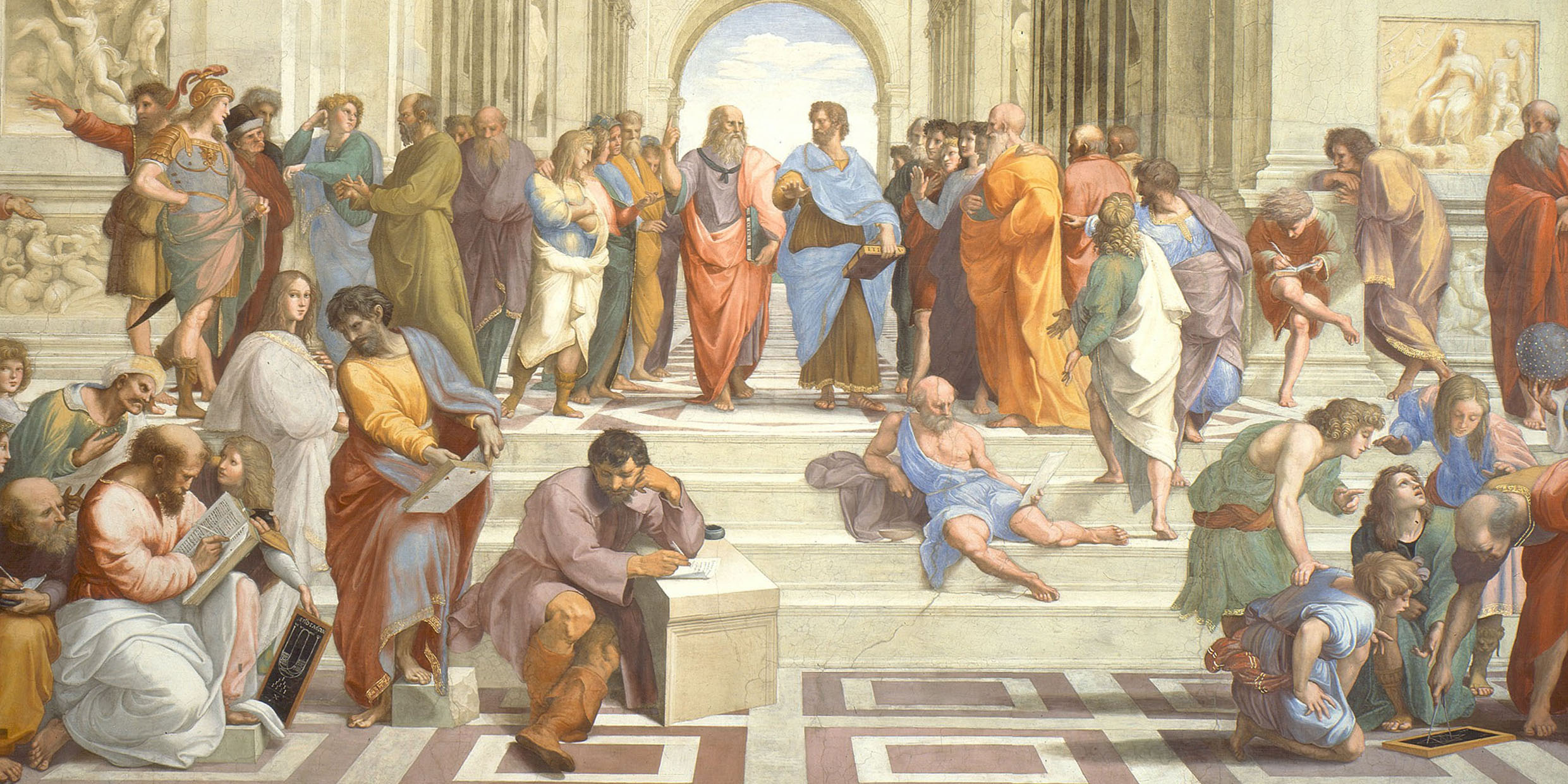Originally published 31 March 1997
It is almost a cliche to say that Western civilization was created by the Greeks. Our government, law, art, music, architecture, literature, drama, historiography, science, and mathematics are largely Greek inventions. We could be dropped into a city state of the Peloponnesian Peninsula in the 4th century B.C. and feel pretty much at home. Only the absence of modern technology and the institution of slavery would seem alien.
Beginning about 600 B.C., the Greeks embarked upon an astonishing period of creativity characterized, in the words of classical scholar E. R. Dodds, by a “progressive replacement of the mythological by rational thinking.” From the founding of the Lyceum about 335 B.C. to the end of the 3rd century B.C., Greek science was transformed from “an untidy jumble of isolated observations mixed with a priori guesses into a system of methodical disciplines.”
Botany, zoology, and geography flourished. Mathematics and astronomy reached a level that would not be equaled again until the time of Galileo. Scientists and mathematicians gathered in places like Alexandria from all over the Mediterranean world. It mattered little where a person was born or what his ancestry was; traditional ways of doing things were shaken up by a new cosmopolitan culture.
In his book, The Greeks and the Irrational, Dodds writes: “Despite its lack of political freedom, the society of the third century B.C. was in many ways the nearest approach to an ‘open’ society that the world had yet seen, and nearer than any that would be seen again until modern times.”
It was a society confident of its powers. Aristotle asked his fellow citizens to recognize a divine spark within themselves: the intellect. Men and women who exercise reason can live like gods, he said. For Zeno, the human intellect is not merely akin to God, it is God, a portion of the divine substance. Temples are superfluous, he said; God’s true temple is the human intellect.
Of this supreme confidence in rational thought, Western civilization was forged.
But the seeds of irrationality were also there, embedded in popular culture, or perhaps embedded in the human soul. By the end of the Age of Pericles, a fear of the new freedom had set in. Supernaturalism returned. Astrology and magical healing replaced astronomy and medicine. Cults flourished, rationalists were scapegoated, and scientific culture began to decline.
The old dualisms — mind and matter, God and nature, soul and appetites — which the rationalists had striven to overcome, reasserted themselves with fresh vigor. Dodds calls it “the return of the irrational.”
He writes: “As the intellectuals withdrew further into a world of their own, the popular mind was left increasingly defenseless…and left without guidance, a growing number relapsed with a sigh of relief into the pleasures and comforts of the primitive…better the rigid determinism of the astrological Fate than the terrifying burden of daily responsibility.”
Harvard historian of science Gerald Holton sees a similarity between Dodds’ description of the decline of Greek culture and the resurgence of anti-science in our own time. Once again, astrology, magical healing, and other kinds of superstitious thinking are in ascendancy. Once again, cults flourish and rationalists are scapegoated.
The Greek experience shows that movements to delegitimize science are always present, says Holton, ready to bend civilization their way by the glorification of folk belief, violence, mystification, and the rabid ideologies of ethnic and nationalistic passions.
In a 1996 Time magazine essay, called “The Return of the Primitive,” Charles Krauthammer made a similar point. The world of scientific fact is too much for us, he writes. Overwhelmed by the demanding complexity of science, we turn instead to penny mysteries, to potions, auras, and alternative healing, and give rapt attention to bearers of tales of alien abductions and Satanism.
We yearn with Wordsworth “to be pagan, suckled in a creed outworn,” says Krauthammer. This is what in the Greek context E. R. Dodds called “the fear of freedom — the unconscious flight from the heavy burden of individual choice which an open society lays upon its members.”
Science can only prosper in a free and open society, in an atmosphere of rational skepticism where traditional patterns of thought are challenged and subjected to critical scrutiny. Science will only flourish when a people have confidence in the power of the human intellect to make sense of the world.
Why did the Greeks recoil from the path of rational science? Why do we recoil from our own Enlightenment? Dodds blames “those irrational elements in human nature which govern without our knowledge so much of our behavior and so much of what we think is our thinking.”
Last week’s tragedy in California confirms that the irrational is always with us. Unless we learn to understand it and confidently face it down, the great modern experiment with rationalism may come to the same murky end as did the Golden Age of the Greeks — a closed, superstitious society that lives in fear of freedom.



